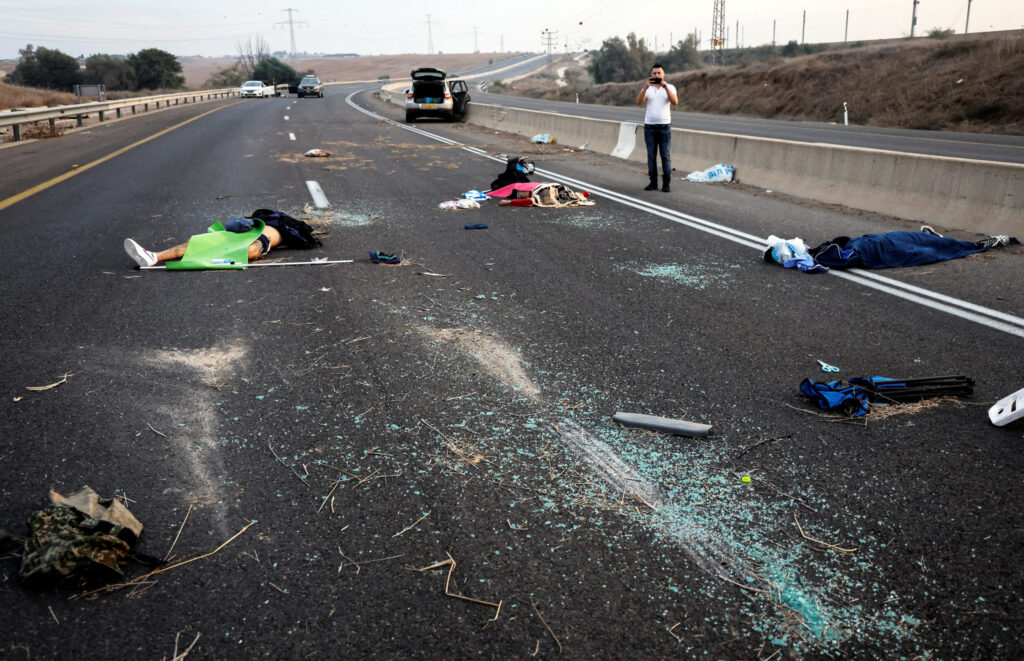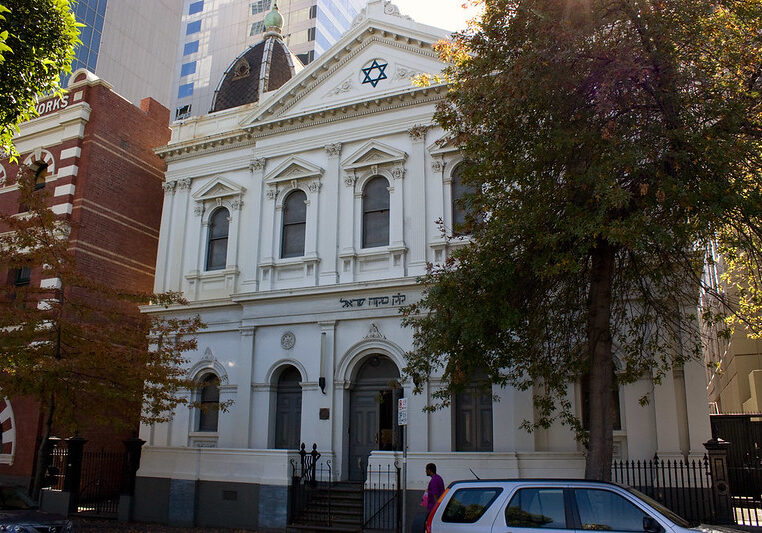Australia/Israel Review, Featured
Editorial: After a year of war
Sep 23, 2024 | Colin Rubenstein

It is one year since Hamas’ bloodthirsty invasion of southern Israel, which killed almost 1,200 Israelis and saw more than 200 hostages abducted to Gaza. Yet the international community appears further than ever from understanding what this war is all about.
Hamas launched the war knowing Israel would have no choice but to conduct a major campaign to destroy Hamas’ ability to threaten it in future.
The day after Hamas attacked, Hezbollah initiated its own bombardment against Israel from Lebanon. Other Iranian proxies, such as the Houthis in Yemen and Iraqi Shi’a militias, were similarly recruited into the war effort. Finally, in April, Teheran removed its mask and attacked Israel directly in a long-range missile and drone barrage thwarted with the participation of the US and its regional allies. Hamas had hoped for even more from the Iranian axis, but nevertheless clearly is not fighting alone.
What does Hamas want? Just over two weeks after the attack, Ghazi Hamad from Hamas’ Political Bureau told Lebanese television that “we must remove [Israel] because it constitutes a security, military and political catastrophe to the Arab and Islamic nation.”
Hamad’s failure to cite Palestinian liberation or nationalism as a goal was no accident. Hamas is not seeking Palestinian statehood, demanding an end to the “occupation” of the West Bank, or reacting to Israeli policies. It may occasionally allude to such grievances, but as Hamad made clear, Hamas’ behaviour is driven by beliefs about Israel’s existence as an insult and danger to Islam.
Hamad also vowed that Hamas would re-enact October 7 “again and again”, regardless of how many Palestinian civilians are killed in the process, until Israel is annihilated.
In flagrant violation of international law, Hamas has been using all of Gaza’s civilians as human shields and hospitals, schools and even humanitarian tent camps as command-and-control centres and staging points for rocket launches, sniper nests and ambushes.
Hamas leader Yahya Sinwar has declared that the civilian losses made inevitable by Hamas tactics are necessary sacrifices. Meanwhile, from the safety of a television studio in Lebanon, Hamad insisted, “We are a people of martyrs.”
Iran has spent decades and billions of dollars creating a network of terror proxies surrounding Israel and is quite open that it seeks the Jewish state’s complete destruction. Furthermore, its leaders today believe they are winning.
How can they be, when Hamas’ military capability is so heavily degraded and most of the West agrees, at least in principle, that Hamas must not be allowed to rebuild its military capability or continue its rule over Gaza?
As Israeli military strategist Major General (res.) Gershon Hacohen has written during the war, the Iranians, Hamas and other jihadist groups are following the logic of muqawama (resistance), which “amounts to a different cultural view of the phenomenon of war itself. In the West, war is seen as a deviation from a stable order… managed with the aim of restoring a state of peace… Within the framework of muqawama, fighting is oriented towards maintaining and preserving a continuous momentum of friction and struggle” – forever, if necessary.
According to Hacohen, muqawama features two faith-based principles. First, the believer must take some sort of action to further Islamic dominance and end perceived insults to Islam. Second, the believer must acknowledge the limitations of current realities, and act with patience (sabr, in Arabic), accepting sacrifice and loss without abandoning the eternal struggle.
These beliefs explain how Hamas, Iran’s mullahs, and other Islamist extremist groups can be so cavalier about the parlous wellbeing of the Palestinian people as long as they can exploit the people’s suffering to further their extremist worldview.
Hamas’ willingness to sacrifice Gaza’s civilians by fighting in a manner guaranteed to put them in harm’s way has in fact proven to be a powerful tool in its arsenal.
The IDF can point to having achieved the best ratio of combatant to non-combatant deaths in the history of modern urban warfare. Military historians can agree it has made unprecedented efforts to try to evacuate civilians from areas likely to come under attack. Contrived global panic over the supposed bloodbath certain to be caused by the IDF’s entry into Hamas’ last stronghold of Rafah can be comprehensively disproven by what actually happened. Yet Israel’s war effort is constantly vilified and denounced because Hamas made sure it would occur under conditions that would guarantee substantial civilian deaths, no matter what tactics the IDF used. Plus, Hamas controls the office that has been providing flawed casualty figures to the UN and a largely credulous media throughout the war.
Meanwhile, in Ramallah, the corrupt, bankrupt and foreign aid-dependent Palestinian Authority, which rewards terrorists with life-long stipends, has been trying to hitch a free ride on Hamas’ coattails.
Earlier this year, in violation of the Oslo Accords that gave the Palestinian government its legitimacy, it lobbied for and received upgraded status at the UN, where it now uses its new privileges for lawfare against Israel. It has now sponsored a wildly extreme General Assembly resolution that not only demands that Israel ends its ‘unlawful presence’ in all of Gaza and the West Bank within one year, but calls for a global arms embargo against Israel, global boycotts on almost all Israeli companies and Israeli reparation payments to the Palestinians. It also declares Israel an “apartheid state”, setting up an “an international commission of inquiry” to effectively dismantle it as a Jewish homeland.
In other words, Hamas’ unspeakable actions on October 7 are becoming the catalyst for an attempt in the international community to impose via coercion all the extremist demands of the Palestinian leadership, without any requirement they agree to live in peace with Israel. Yet shamefully Australia abstained, rather than opposing this resolution.
A year in, Israel’s war in Gaza appears to be drawing to a close. However, the Iranian axis’ war of annihilation against Israel – driven by the muqawama doctrine – has only just begun.
Disappointingly, here in Australia our Government has, far too often over the past year, accepted a Hamas-framed narrative about real-time war events, effectively rewarded the Palestinians for Hamas’ murderous terrorism, and treated Iran with kid gloves, while using our long-standing democratic partner Israel as a political punching bag even as it engages in the fight of its life.
Hopefully it is still not too late for the Albanese Government to join the morally principled Peter Dutton-led Opposition, open its eyes to see through the cloud of obfuscation that has been masking Iran’s terrible gamble, and recognise that this is an ongoing civilisational fight that not only Israel, but the entire West, cannot afford to lose.






